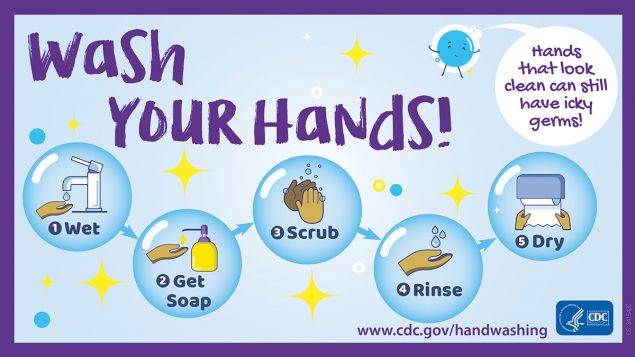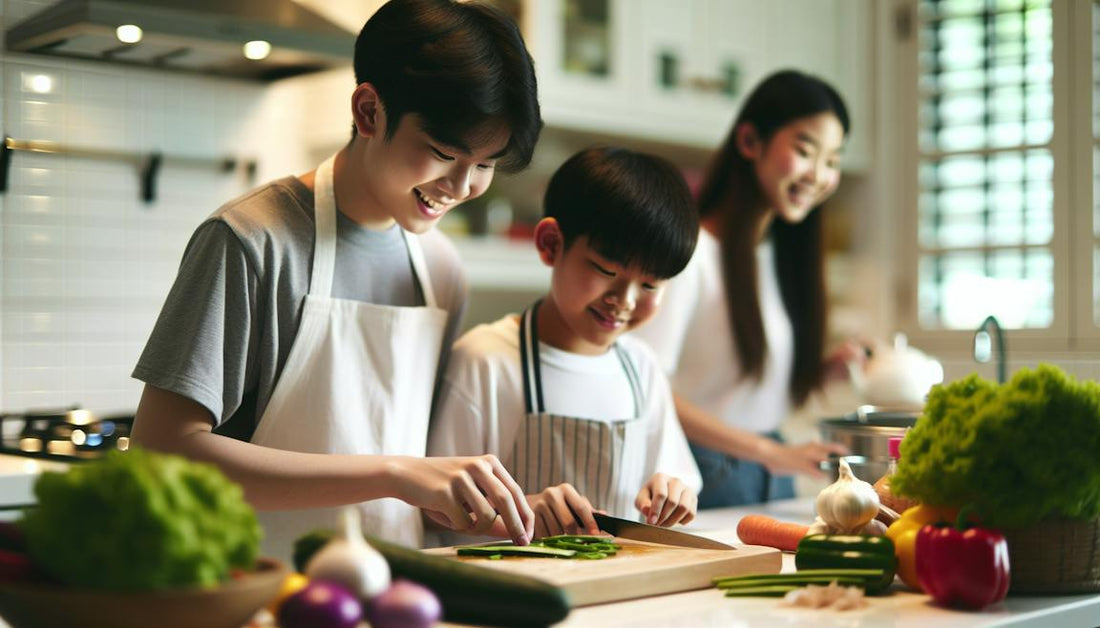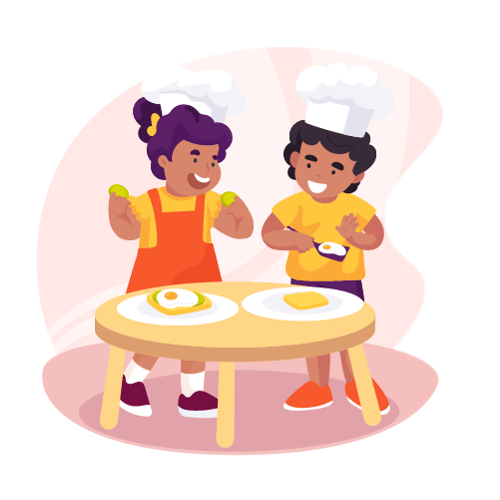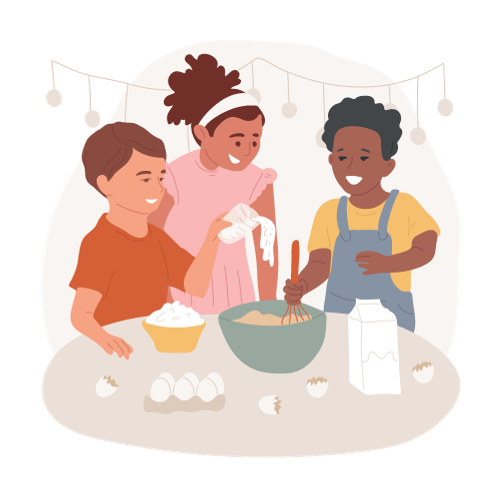Introducing children to the kitchen can be a rewarding experience for both parents and kids alike. Not only does it foster a love for cooking and baking, but it also teaches valuable life skills and encourages creativity. However, safety should always be a top priority when bringing kids into the kitchen. In this guide, we'll explore essential safety tips for parents looking to start baking and cooking with kids at home.
Start with the basics
Begin by teaching your child the fundamentals of kitchen safety. Educate them about handling utensils, using appliances safely, and understanding basic kitchen hygiene. Here are some basic kitchen safety tips for guidance:
- Roll long sleeves up.
- Long hair is tied back.
- Always point a knife away from you.
- Use sharp knives.
- Don’t touch the oven, hot plate, etc
- Always have an adult when cooking.
- Adults will turn ovens and stove tops on and do and/or supervise that part of the cooking.
- Turn on the oven light when cooking.
- Wash hands before cooking.
- Always use separate chopping boards for foods.
- Follow the directions for the recipe especially for the temperature and period of time to ensure food is thoroughly cooked.
- Be aware and careful about cross contamination.
- Safe storage of foods.
- Use correct utensils for the task.
from Seriously Kids: Safety when cooking with kids
Always be present to supervise
Always supervise your child closely, especially when they're using sharp objects or cooking on the stove. Adult supervision in the kitchen is especially important for younger children. It's also essential to teach them to ask for help when needed.
Choose age-appropriate tasks
Assign tasks that are suitable for your child's age and skill level. Check out Momable's list of recipes for kids to make. It offers age-appropriate recipes and tasks for children of different ages. This ensures they can participate safely and feel a sense of accomplishment.
Emphasise handwashing
Teach your child the importance of proper handwashing before and after handling food. Resources like the "Wash Your Hands" guide from the CDC can help reinforce this habit. Make it fun by singing a handwashing song together or using colourful soap.

- Wet your hands with clean, running water (warm or cold), turn off the tap, and apply soap.
- Lather your hands by rubbing them together with the soap. Lather the backs of your hands, between your fingers, and under your nails.
- Scrub your hands for at least 20 seconds. Need a timer? Hum the “Happy Birthday” song from beginning to end twice.
- Rinse your hands well under clean, running water.
- Dry your hands using a clean towel or an air dryer.
from CDC: When and How to Wash Your Hands
Practice fire safety
Educate your child about fire safety in the kitchen, especially if you use a gas stove at home. Show them how to use oven mitts when handling hot dishes and teach them how to respond in case of a fire or emergency. Check out Safe Kids Worldwide's fire safety resources for parents for further guidance.
Teach knife skills safely
When introducing knives, start with child-friendly knives and teach proper handling techniques. Always emphasise the importance of keeping fingers away from the blade and using a cutting board. Learn how to teach knife safety to children as young as 2 years old with this guide on teaching knife skills to toddlers and kids. For video tutorials, check out BBC Good Food's comprehensive chopping and basic knife skills guide for kids.
Use child-friendly equipment
Invest in kitchen tools designed for children, such as safety scissors for cutting herbs or kid-friendly measuring cups. This is because child-sized utensils to make cooking more accessible and safer for young chefs. Check out Montessori's list of children's cooking utensils. Additionally, Wirecutter's list of the best kids kitchen tools is a great place to get ideas, and they've been recommended based on research, tests, and in consultation with experts including cookbook authors, a pediatrician, and a professor of food, nutrition, and health.
Clean up together
Teach your child the importance of cleaning up as they cook. Make it a fun activity by turning it into a game or setting a timer to see how quickly they can tidy up. Introduce kitchen cleaning tasks for children based on age, and show them how to do new tasks correctly.
Celebrate successes
Finally, celebrate your child's accomplishments in the kitchen. Whether they've successfully baked cookies or helped prepare dinner, praise their efforts and encourage their curiosity. Positive reinforcement builds confidence and reinforces their love for cooking.
Cooking and baking with kids can be a wonderful bonding experience that teaches valuable life skills. By following these safety tips, parents can create a safe and enjoyable environment for their children to explore the culinary world.
If you're looking to take your child's culinary skills to the next level in a safe and structured environment, consider enrolling them in our kids baking and cooking classes. Our classes provide hands-on experience, expert guidance, and a fun atmosphere where children can explore their creativity and develop a lifelong love for cooking. Join us as we whip up tasty recipes and create lasting memories together in the kitchen!



